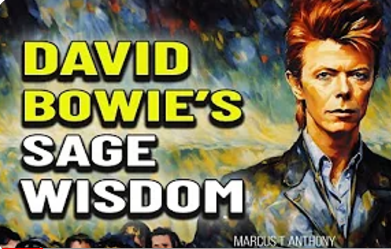
The following is an extract from my upcoming book “Power and Presence: Reclaiming Your Authentic Self in a Weaponized World.” In the discussion to follow, I am going to use the masculine pronoun “he” when referring to The Rebel, but the discussion applies equally to both men and women.
Around about now, with the US election situation having become so volatile, many people are experiencing a lot of anger. Many are active online or even on the streets, seeking what they perceive to be justice – or maybe even revenge.
Perhaps you have one eye upon the world (the object of your anger), and one eye turned back upon yourself, concerned about the strong or even destructive ideas that are moving through your mind. If you are one of these, this article is for you. It’s about noticing how angry you have become. And it’s about being The Rebel, and how that can be either a positive development, or a destructive one.
Let me leave the US election for a moment (I will return to it at the end of the article).
There is an essential idea I wish to share early on. Being a Rebel is both necessary and healthy for all humans. At some point we all need to say “No!” to someone: to our parents, to our siblings and friends, to the boss, to the priest, to our institution or to our culture.
Yet rebellion is only truly healthy if there is a sufficient level of cognitive responsibility behind the actions that The Rebel embodies. When the Rebel’s propensity for cognitive responsibility drops below a certain threshold, The Rebel can become the Firestarter. If all hope fades, he may become the Nihilist, who in turn may express violent and destructive tendencies.
The Rebel Gone Wrong has many common expressions, including:
- The Firestarter
- The Nihilist
- The Tyrant or Fascist
- The Bully
- The Bad Boy or Bad Girl
- The Bad Mother or Bad Father
- The Bastard, the Arsehole or the Bitch (we can’t discuss rebellion without a few cusswords!)
- The Trickster
- The Crusader
Even though these expressions vary somewhat (and debatably), I will use several of them interchangeably, below.
When The Rebel is unable or unwilling to assume responsibility for what arises in his mind and emotional body, an inevitable result is a descent into drama. Drama emerges within any given life situation because we fail to develop the right relationship with our judgments and anger, and they become projected onto the other: onto the parent, the spouse, boss, the leader, the institution, the system and so on. The Firestarter typically hits out in scorn and rage, and tries to damage or even annihilate that which is around him. Fights, arguments, backstabbing, gossip, formation of angry tribes, gangs and work cliques are common behaviours for Firestarters.
If The Rebel sees no avenue for outward projection of his pain and anger, he may alternatively turn that inward. Instead of trying to destroy the other or destroy the system, he becomes self-loathing and self-destructive. Instead of, “It’s not fair! It’s all their fault!” the crestfallen cry becomes: “I deserve this. It’s all my fault.” His behaviour becomes passive, and the anger and shame is internalised. Depression is highly probable, because the anger and sadness has nowhere to express itself.
When we talk about cognitive responsibility, we have to talk about developing the right relationship with anger, because it is anger that drives The Rebel. The Rebel energy, when activated, gives a long, loud raspberry to The Man. To the system. To the Establishment. The (potential) power of the Rebel is his decision to say “No!” It is the decision to set a boundary, or at least an attempt to set a boundary against someone or some system which is seen to be undesirable or perhaps oppressive.

When The Rebel expresses his defiance while exhibiting high levels of spiritual or psychological maturity (cognitive responsibility) combined with personal and moral courage, we get an empowered expression of The Rebel archetype. We get Gandhi. We get MLK. We even get Mother Teresa.
With enhanced cognitive responsibility there is then a strong potential for the healing of the pain body, and thus the integration of the consciousness that is seeking resolution. When drama arises, the healthy Rebel is able to identify his part in the chaos, assume responsibility for that and pull out of the drama. Where judgment and blame arise in his mind, he is able to witness it, work with it, and allow it a healthy expression.
There are not so many clear names or expressions for the idea of the healthy Rebel, but we can see the character in various other archetypes.
- The Freedom Fighter
- The Hero or Heroine
- The Noble Leader
- The Good Mother and the Good Father
- The Spiritual Master
- The Healer
As is often noted, one man’s Freedom Fighter is another man’s Terrorist. That may be because the frame is being controlled by opposing outside parties, or simply because not everyone’s values and goals are the same.
It may also be because of the inconsistent behaviour of the individual. No Rebel ever stepped forth into the world without being a Firestarter on some occasions. Indeed, it may be necessary to witness oneself as The Asshole or The Bitch, and to acknowledge that, before we can move beyond that expression, before we can pull out of any given drama and integrate the consciousness of it. To heal. To find empowerment.

Is it me or is it them?
The Rebel’s healthy expression of judgment and pain often requires little or no participation from the perceived opposing force. This is something that is very important to understand. It lies at the root of personal empowerment. Quite often the oppressive narrative that we are reading onto our experience – onto “The Man,” onto society, onto the world – is self-generated. Such narratives can spawn endless cycles of drama. In this situation, we merely own our part in the story and pull out of the drama.
The situation is complicated by the fact that quite often the drama we are participating in is driven by our unresolved issues or pain. Our suffering is the hook. If that is the case, we may need to develop the right relationship with our emotional body, to find some safe space where we can express our anger, hurt and sadness (more about that in my next article).
Further, we all live in societies where our psyches are embedded culturally, ideologically and politically within narratives (and perhaps even consciousness fields) that are seeking to exploit us in order to enhance an agenda. That agenda will usually involve some push for power and control over us.
Thus it is the task of The Rebel to determine as honestly as he can how much of what is unfolding in his experience is due to his own behaviors and attitudes; how much is due to the irresponsible and disrespectful behaviors and manipulations of others; and how much is due to genuinely undesirable or oppressive systems. The distinctions are rarely black and white. No group, no system, no leader, no parent is a perfectly evolved entity. Nor are we.

The 2020 US Election (again)
I write this just days after the 2020 US presidential election, where The Rebel energy – and in particular anger and blame – has emerged at levels that are historically high. The potential for an unhealthy expression of that archetype is great. Individual and tribal responsibility levels are extremely low, and both drama and the need for drama is gravely elevated.
Many – probably most – people will take sides in the battle, and this is to be expected. Human beings are tribal by nature. We identify with our group, our team, our heroes and our stories. We love to project against our villains, to blame them for the evil we see in the world. Or in ourselves.
Thus, right now we have a very high potential for a destructive expression of The Rebel archetype to (further) emerge. In particular, we can pay attention to the following scenarios.
- Leaders and political parties may fail to assume a sufficiently high level of responsibility for their own issues and their own shadow energy, choosing instead to manipulate people and ferment conflict and chaos.
- Your institution, profession, or tribe is probably exploiting (deliberately or unconsciously) the widespread high need for drama. Projection, judgment and blame are commonly being fermented.
- Many of your friends and colleagues, both in real life and especially in virtual space, will currently have low levels of cognitive responsibility, coupled with a high potential for drama. Indeed, many are probably smack bang in the middle of several dramas at this moment.
- Right now, you too probably have a high need for drama, and your cognitive responsibility level is probably much lower than usual. Therefore, you are likely more vulnerable than usual to being drafted into someone else’s frame, narrative or drama, including destructive and violent ones.
Although it may be difficult to see it, all this means that there is an incredible opportunity to further develop in your own level psychological and spiritual maturity. To become more wise. Opportunities like this do not come along all that often in any given lifetime.
The check list
So, what can you do right now in response to the current time of elevated tensions?
First, check to see if you have given your power away to a leader or group, and in particular whether you are projecting some kind of saviour – or demon – narrative onto power figures.
Reflect carefully also upon the narratives and dramas that are now circulating through your mind, and through your information sources. Are these ideas and thoughts really yours, or has your mind become colonised? Are you possessed? How did that narrative get in there? When?
Is your consciousness expanding or contracting along with your chosen focus? You will know the answer to this last question intuitively.
Is it possible to reconfigure the story you have adopted; or better still, to pull out of the narrative and drama altogether?
If you are involved in some kind of political activism or even just some online commentary, how much of that is representative on a healthy Rebel consciousness? Or have you become the Firestarter?
In the end, we need a strong motivation for choosing to do the kind of inner work I am sharing here. For me, it is knowing that my own healing and intentionality is helping humanity evolve. The light that we shine within ourselves helps light the world, if only just a little. That light, I believe, transcends time and space, helping heal past and future; for us as individuals, and for all those whom we are connected to across time, space and mind. And for that to unfold we need to develop a high level of awareness of how our minds work, and in this case how The Rebel energy can be expressed healthily – or destructively.
You will also require a suitable set of tools to do the work. That will be the subject of my next article.




